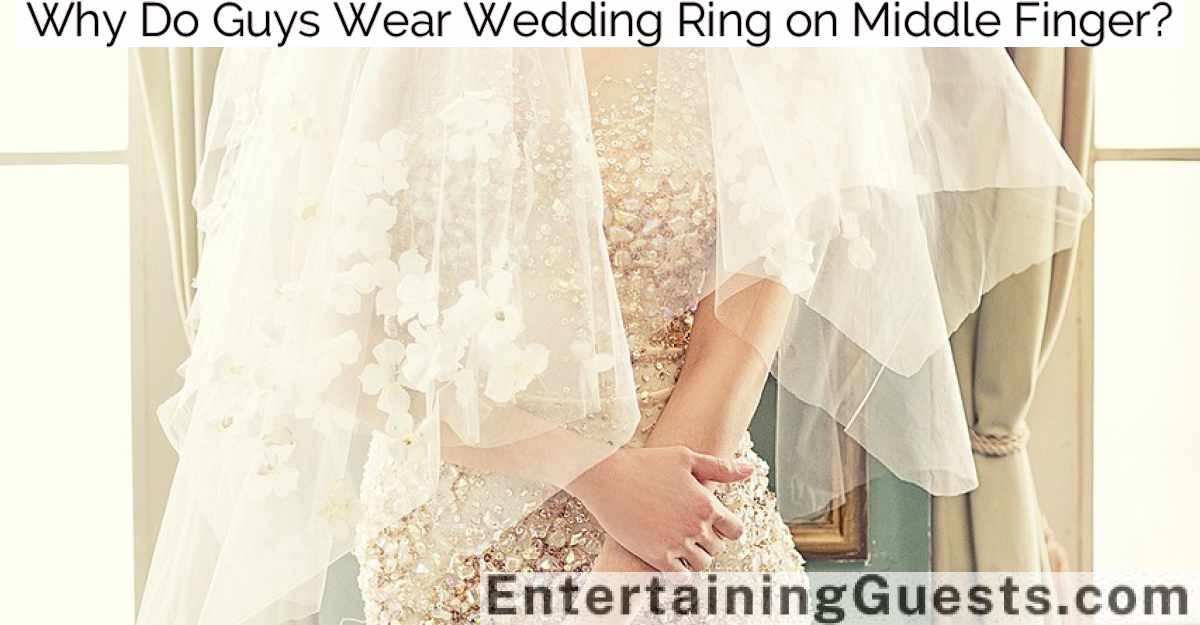When choosing a wedding band for men, it is important to evaluate materials that blend style with resilience. Gold stands out for its timeless appeal and customizable designs, offering colors like yellow, white, and rose. Platinum impresses with its robust, hypoallergenic nature, retaining its brilliant white without re-plating. Titanium and tungsten offer lightweight strength and scratch-resistance, perfect for daily wear. Stainless steel provides a modern look at an affordable price, while silver adds classic elegance. For a unique choice, wood bands showcase natural beauty and sustainability. Each material offers distinct advantages that cater to different preferences and lifestyles, promising more insights on their unique benefits.
Key Takeaways
- Gold symbolizes tradition and enduring love, offering durability in 14k and 18k options with unique color varieties like yellow, white, and rose.
- Platinum is hypoallergenic, retains its brilliant white color naturally, and is valued for its exceptional durability and prestige.
- Titanium provides high strength-to-weight ratio, is hypoallergenic, corrosion-resistant, and lightweight, ideal for daily wear.
- Tungsten is extremely durable, virtually scratch-resistant, and offers a substantial feel with various finish options.
- Stainless steel is cost-effective, highly durable, easy to maintain, and hypoallergenic, reflecting modern commitment and style.
1. Gold: Timeless and Traditional
Throughout the ages, gold has remained the quintessential choice for men’s wedding bands, symbolizing both tradition and enduring love. Its allure lies not only in its aesthetic appeal but also in its cultural and historical significance. Gold bands have been a standard in matrimonial symbolism, favored for their rich, warm tones that complement any skin tone. Additionally, a stunning live band performance at the wedding can elevate the celebration, creating unforgettable memories that visitors will cherish. Gold’s malleability is one of its most significant properties, making it ideal for crafting intricate and personalized designs that are both beautiful and meaningful. This versatility allows jewelers to tailor rings to individual tastes, from classic, simple bands to more elaborate ones with engravings and gem inlays. Despite its softness, when alloyed with other metals like copper or zinc, gold increases in strength, making it suitable for everyday wear.
The purity of gold is measured in karats, with 24-karat being the purest form. However, for wedding bands, 14-karat and 18-karat gold are more popular choices. They offer a perfect balance between purity, durability, and affordability. The lower the karat, the harder the alloy, and the more resistant it is to scratches and dents.
Gold also offers a range of colors—yellow, white, and rose, each providing a unique aesthetic. Yellow gold maintains the classic look, while white gold offers a sleek, modern alternative, and rose gold has gained popularity for its romantic and vintage appeal.
Choosing a gold wedding band isn’t just about picking a piece of jewelry; it’s about investing in a timeless symbol of love that’ll be cherished for a lifetime
2. Platinum: Durable Luxury
MY ARTICLE SUBHEADING CONTENT]:
Why settle for less when you can have the epitome of durability and luxury in a wedding band? Platinum stands out in the domain of wedding bands, offering unmatched qualities that cater to those who seek both elegance and practicality. Recognized for its superior density and strength, platinum is the go-to choice for men who appreciate a blend of classic style and robust performance. Additionally, like black wedding bands, platinum rings symbolize a modern commitment that reflects individuality and a profound declaration of love’s resilience symbolize strength and commitment.
Platinum’s allure isn’t just in its appearance; its practical benefits are compelling:
- Hypoallergenic Properties: Ideal for sensitive skin, platinum minimizes the risk of allergic reactions, making it a safe choice for daily wear.
- Natural White Luster: Unlike other metals that may tarnish or require re-plating, platinum retains its brilliant white color naturally.
- Exceptional Durability: Known for its remarkable durability, platinum resists wear and tear much better than other jewelry metals. Its density guarantees it withstands daily activities without losing its integrity.
- Prestige and Value: Platinum is not only about aesthetics and function; it also holds significant prestige and maintains its value over time, making it a worthwhile investment.
These characteristics guarantee that a platinum wedding band is not just a symbol of love but also a practical decision for longevity and style. Its ability to withstand the rigors of everyday life, while maintaining its elegance and value, makes it a superior choice for wedding bands. As men consider their options, platinum emerges as a compelling selection that offers both beauty and enduring quality, guaranteeing that the ring will remain a cherished token of their union for years to come.
3. Titanium: Lightweight Strength
Titanium stands out as an ideal choice for men’s wedding bands due to its hypoallergenic properties, ensuring it won’t cause skin irritation for those with sensitive skin. Its remarkable strength-to-weight ratio means it maintains form and resists wear in everyday activities. In addition, wearing a titanium ring can symbolize commitment and strength, reflecting the values associated with marriage, as noted in the significance of wedding rings in various cultures symbolism of wedding rings. Moreover, titanium’s durability makes it a practical option for those who engage in manual labor or vigorous sports.
Hypoallergenic Properties
When selecting a wedding band, many men prioritize not only style and durability but also comfort regarding skin reactions. Titanium stands out as a superior choice for those with sensitive skin due to its hypoallergenic properties. Unlike many other metals used in jewelry making, titanium is inherently compatible with human skin, which considerably reduces the risk of allergic reactions.
Titanium’s hypoallergenic nature is due to several key factors:
- Biocompatibility: Titanium is non-toxic and biologically inert, making it widely used in medical implants and body piercings.
- Corrosion Resistance: It naturally resists corrosion from bodily fluids, which helps prevent irritation or skin discoloration.
- Nickel-Free: Many metal allergies are triggered by nickel content. Titanium bands typically do not contain nickel, sidestepping this common irritant.
- Purity: High-grade titanium used in wedding bands often features greater purity compared to other metal alloys, minimizing potential allergens.
These attributes make titanium an excellent choice for men who want a wedding band that’s as safe as it is stylish. It’s particularly suited for those who experience skin sensitivities, ensuring that their ring is as comfortable to wear as it is pleasing to the eye.
Durability in Daily Use
In addition to its hypoallergenic properties, titanium offers remarkable durability, making it ideal for men’s wedding bands that must withstand daily wear and tear. Renowned for its strength-to-density ratio, one of the highest among all metallic elements, titanium guarantees that a wedding band doesn’t just survive but thrives under the pressures of everyday activities. Unlike softer metals that can deform or scratch easily, titanium maintains its form and finish even when subjected to rigorous tasks.
This metal resists corrosion from saltwater and acidic environments, which means it’s as suitable for a chef or a swimmer as it is for an office worker. Its inertness makes it a prime choice for men who are exposed to various chemicals or harsh conditions. Additionally, despite its toughness, titanium is remarkably lightweight, guaranteeing comfort throughout the day without sacrificing robustness.
Titanium’s enduring nature means it often looks new for years, with minimal maintenance required. It doesn’t tarnish over time like silver or require frequent polishing like gold. For the practical man who values longevity and practicality in his accessories, titanium stands out as a superior selection for a wedding band that’s both durable and stylish.
4. Tungsten: Scratch-Resistant
Tungsten stands out as an exceptionally durable choice for wedding bands due to its inherent scratch-resistant properties. This material maintains its polished look over time, reducing the need for frequent maintenance. Exploring tungsten’s benefits, it’s clear that its robustness and lasting shine offer practical advantages for everyday wear.
Extreme Durability Benefits
Many men seeking a wedding band that withstands daily wear without showing signs of distress often choose tungsten for its extreme durability. This material is renowned for being virtually scratch-proof, a quality that sets it apart in the domain of wedding bands. Tungsten’s composition, primarily consisting of tungsten carbide, is crafted to resist abrasion, which allows it to maintain its pristine condition much longer than other materials.
The extreme durability benefits of tungsten include:
- Resistance to Scratching: Unlike softer metals like gold or silver, tungsten stands up to everyday tasks without accruing damage.
- Hardness and Density: Rated at about 9 on the Mohs scale of mineral hardness, tungsten is second only to diamonds, highlighting its exceptional toughness.
- Low Maintenance: Due to its tough nature, tungsten doesn’t require frequent polishing to keep its appearance.
- Longevity: Bands made from tungsten are likely to retain their original shape and finish, enduring through years of wear without deformation.
Choosing tungsten means investing in a wedding band that promises both style and substance, ensuring it remains as enduring as the commitment it symbolizes. Such properties make it an excellent choice for anyone interested in a blend of aesthetic appeal and functional longevity.
Maintaining Tungsten’s Shine
Maintaining the luster of a tungsten wedding band requires minimal effort, thanks to its inherent scratch resistance. Tungsten, known for its tough nature, stands up remarkably well against daily wear and tear, making it an ideal choice for those who engage in hands-on work or lead active lifestyles. The hardness of tungsten carbide means it retains its finish much longer than other popular metals used in wedding bands, such as gold or silver.
To keep a tungsten band looking its best, regular cleaning is recommended. Simply use a mix of warm water and a few drops of mild soap, gently scrubbing the band with a soft cloth or brush. It’s essential to avoid using harsh chemicals or abrasive cleaners, as these can damage the band’s polished surface. After cleaning, rinse the band thoroughly in clean water and dry it with another soft cloth.
For added shine, you can occasionally use a jewelry polish that’s specifically formulated for tungsten. This will enhance the gleam without compromising the metal’s integrity. Remember, while tungsten is exceptionally scratch-resistant, it isn’t completely scratch-proof. Consequently, storing the band separately from other jewelry to avoid potential scratches is wise.
5. Stainless Steel: Affordable Quality
Stainless steel offers an exceptional balance of durability and affordability, making it an increasingly popular choice for men’s wedding bands. Renowned for its strength, stainless steel stands up to the rigors of daily wear without succumbing to rust or corrosion. This material is especially suitable for those who engage in manual labor or vigorous activities, ensuring that their wedding band remains intact and lustrous over the years.
Moreover, stainless steel’s versatility in style allows for a variety of finishes, from matte to highly polished, which can mimic the look of more expensive metals like platinum, without the hefty price tag. Its hypoallergenic properties are also a significant advantage for wearers sensitive to other metals. Stainless steel is not merely practical; it is also a symbol of modernity and technological advancement, reflecting a commitment that is both contemporary and enduring.
Key attributes of stainless steel include:
- Durability: Highly resistant to scratches, dents, and breakage.
- Maintenance: Requires minimal upkeep and is easy to clean.
- Cost-effectiveness: Typically less expensive than other wedding band materials.
- Hypoallergenic: Ideal for those with allergies to metals such as nickel.
As couples seek both style and practicality in their choice of wedding bands, stainless steel emerges as a top contender. Its robust nature paired with economical pricing makes it an astute choice for the modern groom. When considering long-term wear and timeless appeal, stainless steel provides a compelling option that merits consideration.
6. Silver: Classic Elegance
In the domain of wedding bands, silver stands out for its classic elegance and timeless appeal. This precious metal has been cherished for centuries, not just for its aesthetic qualities but also for its cultural significance. Silver bands signify purity and clarity, making them a profound choice for many grooms.
Silver’s malleability makes it an excellent choice for intricate designs and custom engravings, offering a personal touch that many couples seek in a wedding band. This flexibility does not compromise its durability; however, it’s vital for buyers to reflect on sterling silver—a blend of 92.5% silver and 7.5% other metals, typically copper. This alloy enhances the strength of the band, ensuring it withstands the rigors of daily wear.
Moreover, silver is highly reflective, boasting a brilliant shine that captures the light with every movement. This makes it particularly appealing for those who prefer a ring that stands out for its lustrous finish. Despite its allure, silver is surprisingly affordable compared to other precious metals like gold or platinum. This cost-effectiveness allows couples to invest in a luxurious-looking band without straining their budget.
Care for silver bands is straightforward, involving regular cleaning and polishing to maintain its shine and prevent tarnish. It’s recommended to store silver wedding bands in a cool, dry place and avoid exposure to harsh chemicals.
7. Wood: Unique and Natural
Wood wedding bands offer a distinct departure from traditional metal options, appealing to those who value uniqueness and a connection to nature. Such rings aren’t just about aesthetics; they’re also a reflection of sustainability and eco-friendliness. Usually crafted from reclaimed or responsibly harvested wood, these bands come in a variety of types including oak, walnut, and maple, each adding its own unique grain and color to the design.
The versatility of wood allows for a range of styles, from rustic to contemporary, ensuring that each band can be as unique as the individual wearing it. Furthermore, wood bands often incorporate other materials like metals or gemstones, enhancing their visual appeal and structural integrity.
Here are some key considerations when choosing a wooden wedding band:
- Durability: While wood is not as durable as metal, proper treatment and care can prolong its life.
- Customization: Wood bands can be easily customized with carvings or inlays, making them highly personal.
- Comfort: Wood is lighter than most metals, which makes it more comfortable to wear.
- Maintenance: These rings require more maintenance than metal bands, including regular oiling to prevent drying out.
Choosing a wood wedding band is a commitment to both style and substance. It’s an excellent choice for those who are looking for something that stands out from the conventional, while still holding deep personal and environmental significance. As with any fine jewelry, selecting a wood ring should involve careful consideration of the lifestyle and values of the wearer.
Frequently Asked Questions
Can Wedding Bands Be Resized Easily?
Yes, wedding bands can be resized, but the ease depends on the material. Metals like gold, silver, and platinum are typically more malleable and easier to adjust. However, harder materials such as tungsten or titanium can’t be resized easily or at all. It’s important to take this into account when choosing a ring, as resizing might be necessary if one’s finger size changes over time due to factors like weight fluctuations or health conditions.
How Do I Measure My Ring Size at Home?
To measure his ring size at home, he can use a strip of paper or a piece of string. He’ll wrap it around the base of his finger, mark where it meets, and measure the length against a ruler. It’s important he compares this measurement to a ring size chart available online. For accuracy, he should guarantee his finger is at normal body temperature and measure it several times at different times of the day.
Are Hypoallergenic Materials Available for Wedding Bands?
Yes, there are hypoallergenic materials available for wedding bands. Many men opt for platinum or titanium, as they’re naturally hypoallergenic and safe for sensitive skin. Another excellent choice is palladium, which, like platinum, offers durability without causing allergic reactions. These materials guarantee that wearing a wedding band doesn’t lead to discomfort or health concerns. It’s important to choose a band that’s not only stylish but also kind to your skin.
What Is the Average Cost of Men’s Wedding Bands?
The average cost of men’s wedding bands varies widely. It typically ranges from $100 to over $2,000. The price depends on the material chosen, with metals like gold and platinum being pricier, while materials like tungsten or titanium are more affordable. Additionally, custom designs or inclusion of diamonds or other precious stones can greatly increase the cost. Buyers should consider their budget and preferences when selecting a wedding band.
How Long Does It Typically Take to Customize a Wedding Band?
Customizing a wedding band typically takes between two to eight weeks, depending on the complexity and the jeweler’s workload. Most jewelers need time to perfect the design, source materials, and craft the band to the client’s specifications. Rush options are available but may incur additional costs. It’s important for couples to plan ahead and allow ample time for this process to guarantee they receive the exact ring they desire for their special day.
Conclusion
In choosing the perfect wedding band for a man, material matters. Gold offers timeless appeal, while platinum exudes a robust luxury. Titanium and tungsten provide strength and scratch resistance, ideal for hands-on lifestyles. Stainless steel delivers quality at an affordable price, and silver brings a touch of classic elegance. For those drawn to nature, a wooden band stands out as a distinct, organic choice. Each material brings its own unique qualities to match a man’s individual style and needs.







